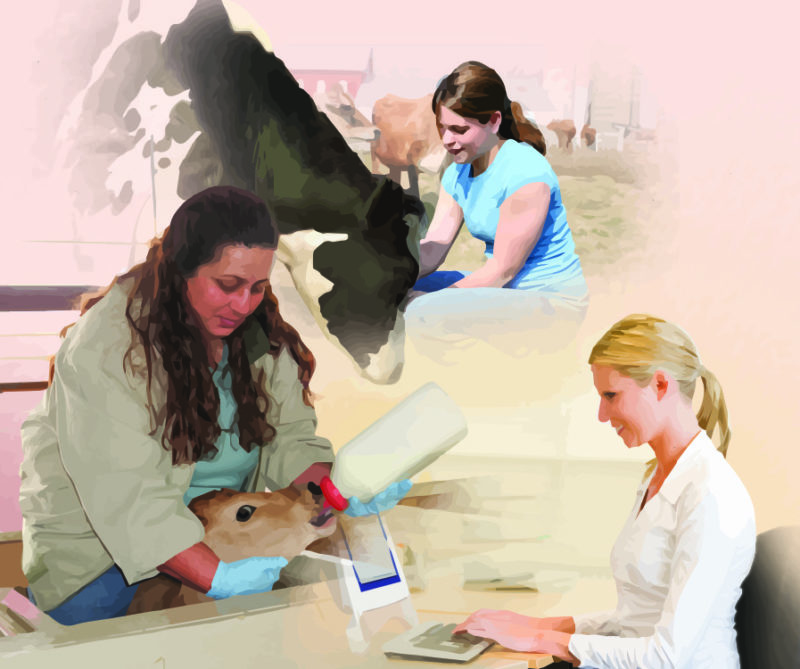In farming, so much of what we do is about investing in an uncertain future. That is especially true when you consider the planting season and all the steps we take to maximize the year’s harvest.
We spend our winters going over equipment and making sure it is ready for the season to come. In the spring, we take soil samples to get precise measurements of soil fertility, calculate how much NPK to apply to meet the crop’s need, and stay closely attuned to the weather forecast to make sure we have just the right balance of warm, moist, fertile soils to cradle the seeds when they are planted. We research seed varieties to identify what will work best in the soils we have, and we make sure we set our planter for the ideal planting depth and population rate to give those seeds every opportunity to grow.
We have no idea when we plant the crop what the season will bring. It could bring droughty conditions or tremendous flooding, extreme heat or cool, damp weather all summer long. There is no clear roadmap. We just provide the best foundation we can so the seeds we plant develop strong roots to take on whatever the season throws their way.
The same is true when it comes to our children. Last August, when I was feeling down about having a second son leave to attend college two states away, I came across this quote: “To raise a child who is comfortable enough to leave you means you’ve done your job. They are not ours to keep but to teach to soar on their own.”
So often in our society, parents want to protect their children from life’s messes. Recently, I read an article from a university president who was sharing some of the ways parents intervene in their adult children’s lives. It was funny to read, even though I could relate as a mom to the stories he shared. The truth is: Our role as parents is not as much about protecting them as it is about giving them strong roots to withstand whatever life throws their way.
So what can we learn from what we do on the farm? Here are some ideas I got recently from an article.
1. Start with a good base. We all know how important soil is to growing crops. Rocky, shallow soils will not yield as large of a crop as rich, deep soils. The same is true with our children. The article talked about modeling and how children emulate what they see, so consider how you are modeling the values you want to see in your children. Do they see honesty and integrity in your actions? How are you handling conflict? How accepting are you of their own uniqueness? A child’s perception of how they see the world really starts with what they see at home.
2. Feed your crop. Planting the seeds in deep, rich soil isn’t enough to ensure a productive crop. You must feed it the right formula of nutrients to give it nourishment to replenish and grow. In years like this, farmers might consider cutting corners on fertilizer, but that usually ends up hurting them in the end. So consider ways we can nourish our children. Anyone who has had three teenage boys in their house knows all about what it takes to nourish them. But nourishment is more than food. It’s about giving them encouragement and showing them they are cherished by you and you care. Listening to them, calling out their strengths and asking for their ideas are all ways to provide nourishment.
3. Make the time. Whether it is on the farm or in any other part of our society, time is always in short supply. But could you imagine if you rushed through the planting season as quickly as you could without making time to do the planning and preparation that is needed? So how are you making time for your children? For me, this is a challenge because of working full time off the farm and often having daily responsibilities on the farm. I can find myself rushing from one activity to another without stopping to even think about anything but what comes next. When that happens, your children can feel like you don’t have time to care about what’s going on in their lives. Find ways to make the time to be with them – whether that is by finding a project you can do together or just by sitting down and asking what was exciting about their day.
4. Control the weeds. Every farmer knows how important it is to protect your crop against weeds and other pests. So what are you doing to protect your children against the “weeds” that can grow to cause havoc in their lives? Those weeds can grow from negative influences on social media, for those who are online, or even just from friends at school or around the community. Encouraging them to be involved with youth groups at church or through the farm, like 4-H and FFA, can help make sure they have plenty of positive influences to balance that out.
5. Be prepared for the storm. Whenever a hailstorm or torrential winds are approaching, we wish we had a giant temporary ceiling we could put up to protect our crops. But the reality is: You cannot protect your crops from storms. You just have to hope their roots are deep enough that they bend, not break, and stand up again after it is over. We all face storms in our life, whether they arise because of a poor choice or through no fault of our own. Chances are, your children will face storms you never expected may arise. Our job as a parent is not to put up a giant ceiling to protect them, but to give them both the roots to bend and the encouragement to get back up again. It is in life’s storms where resiliency develops.
6. Know when to harvest. Eventually, in every season, you must decide when it’s time to harvest the crop and let it move to the next phase in the cycle of life. While you don’t harvest your children, there does come a time to let go and trust they are ready to move to the next season without you constantly being there to intervene. Unfortunately, today many of us can hold on too long. Think about your crops. If you would wait too long to harvest the corn silage in the fall, what would happen? What about if you would wait too long to harvest your hay? The longer we wait to let go, the harder it will be for our children to flourish and become productive, capable adults.
Robert Louis Stevenson once said, “Judge each day not by the harvest you reap but by the seeds that you plant.” So much about parenting, like farming, is about preparing for an uncertain future. It’s not an easy job, and it is natural to worry whether you are doing enough to help your children succeed. Sometimes we just have to have faith and know all we can do is give them strong roots so one day they find the wings to fly.





